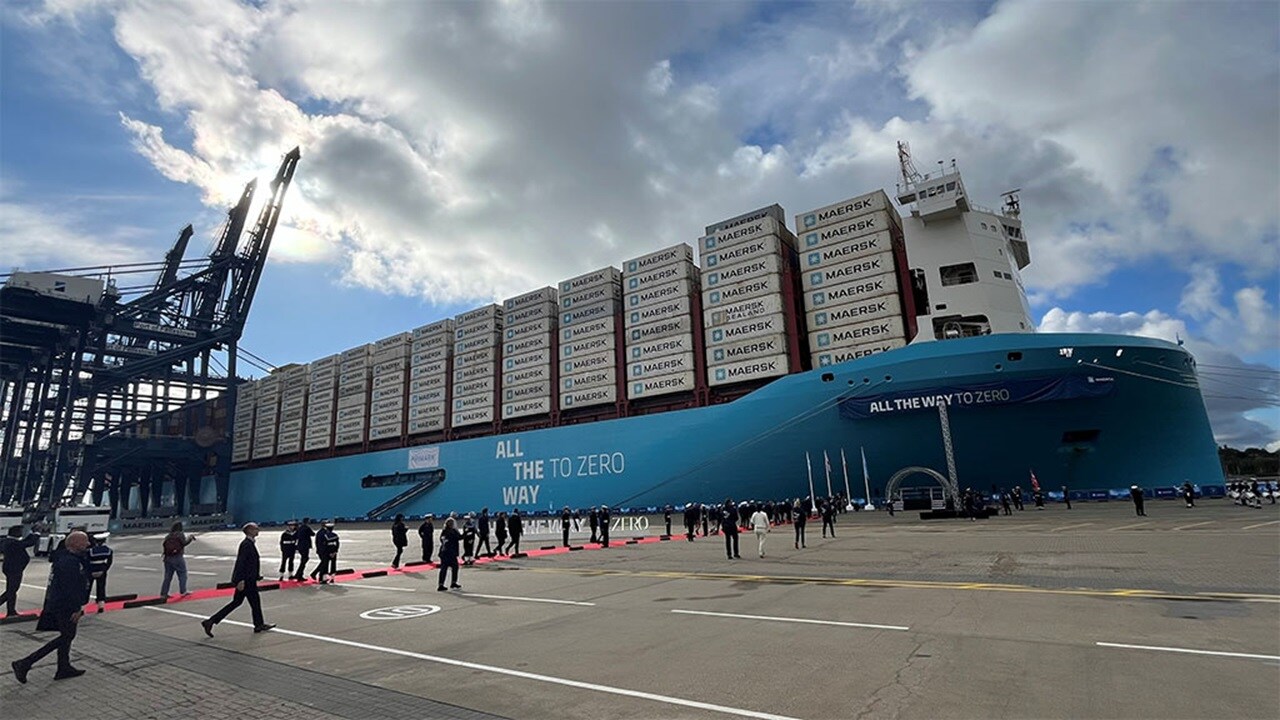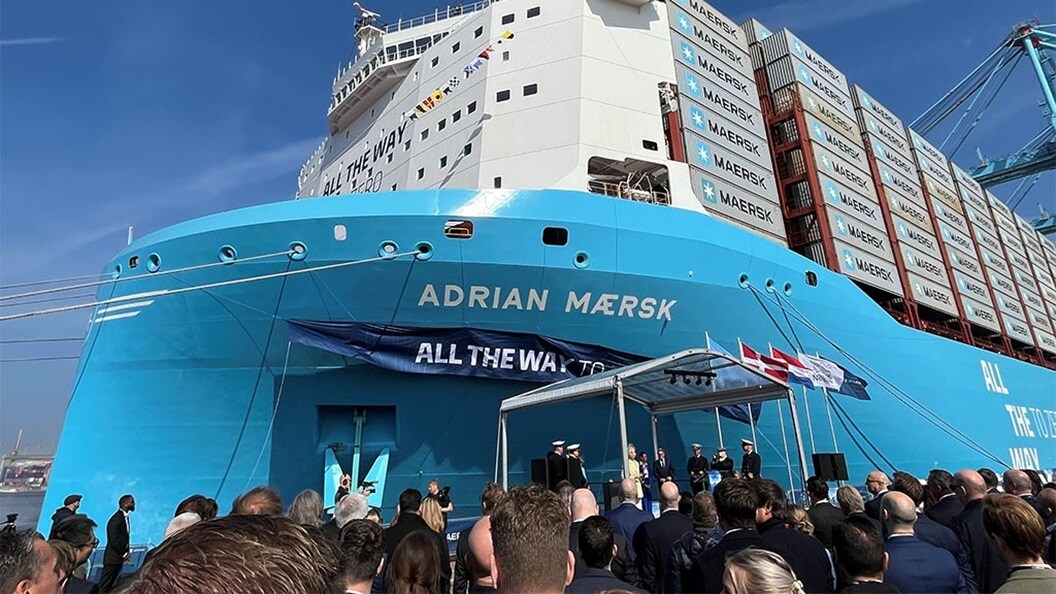Rotterdam: Today, A.P. Moller - Maersk has celebrated the naming of the dual-fuel methanol ship “Adrian Mærsk” at its APM Terminals Maasvlakte II terminal in Rotterdam. Stephanie Pullings Hart, Executive Vice President and Chief Operations Officer (COO) at Nestlé, is the godmother of the container vessel. Nestlé, a key customer, ships 100% of its Maersk ocean cargo under the ECO Delivery Ocean product which utilizes alternative fuels to reduce greenhouse gas (GHG) emissions. These alternative fuels reduce the GHG emissions of the Nestlé cargo by more than 80% compared to conventional fossil ship fuels and stand for a substantial financial commitment of Nestlé who has been using ECO Delivery Ocean since 2023.

The dual-fuel vessels demonstrate that the technology for the energy transition of the shipping industry is here. What is crucial now are the decisions that the International Maritime Organization (IMO) member states will make in London next month. We urgently need regulation to support the uptake of fuels that significantly reduce GHG emissions. At the same time, we need ambitious customers like Nestlé as our close partners in the green transition of shipping and logistics which we couldn’t achieve without their support.
At Nestlé, we recognize climate change as one of the most pressing challenges of our time. As a global leader in the food and beverage industry, we are committed to taking bold actions to address this issue. By achieving a 20% reduction in greenhouse gas emissions by 2024, ahead of our 2025 target, and aiming for net zero by 2050, we demonstrate our dedication to sustainability. Our green logistics efforts, including partnerships with Maersk, showcase our commitment to reducing emissions and promoting a sustainable future.
“Adrian Mærsk” has a capacity of over 16,000 TEUs (Twenty-Foot Equivalent Units) and will serve the Asia-Mediterranean trade lane after completing its maiden voyage from Rotterdam. As part of Maersk’s new East-West network, it will do its part to fulfil Maersk’s ambition to deliver a schedule reliability above 90% once the new network is fully phased in. Maersk’s hub terminals like APM Terminals Maasvlakte II in Rotterdam play another vital role in achieving this goal.
Dual-fuel vessels are central to Maersk’s decarbonization plans. Bio- and e-methanol can reduce GHG emissions by 65% to 90% compared to conventional fossil fuels, depending on the feedstock and production process. Maersk will also deploy dual-fuel liquefied methane vessels, aiming to use bio- or e-methane as soon as possible. Given the global fuel demand, a mix of several alternative low-emission fuel technologies is necessary to decarbonize the shipping industry.
About Maersk
A.P. Moller - Maersk is an integrated logistics company working to connect and simplify its customers’ supply chains. As a global leader in logistics services, the company operates in more than 130 countries and employs around 100,000 people. Maersk is aiming to reach net zero GHG emissions by 2040 across the entire business with new technologies, new vessels, and reduced GHG emissions fuels*.
*Maersk defines "reduced GHG emissions fuels" as fuels with at least 65% reductions in GHG emissions on a lifecycle basis compared to fossil of 94 g CO2e/MJ.
For further information, please contact:
Anything you need, we’re here to help
I agree to receive logistics related news and marketing updates by email, phone, messaging services (e.g. WhatsApp) and other digital platforms, including but not limited to social media (e.g., LinkedIn) from A. P. Moller-Maersk and its affiliated companies (see latest company overview). I understand that I can opt out of such Maersk communications at any time by clicking the unsubscribe link. To see how we use your personal data, please read our Privacy Notification.
By completing this form, you confirm that you agree to the use of your personal data by Maersk as described in our Privacy Notification.

